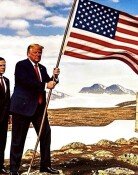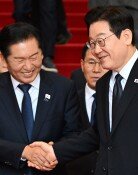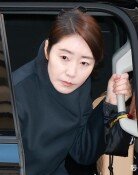[Washingtons Policy on Korean Peninsula] AEI, Fortitude of Neo-conservatism
[Washingtons Policy on Korean Peninsula] AEI, Fortitude of Neo-conservatism
Posted January. 15, 2004 15:49,
People in Washington often refer to the American Enterprise Institute for Public Policy Research (AEI) as an annex of the White House or a fortress of neo-conservatism.
The AEI has earned such nicknames because it has close ties with its former members who are now in key posts in the U.S. administration and has significant influence in connection with the policy decision process.
A closed-door forum regarding the alliance between South Korea and the United States was held in Gyeonju-si, Gyeongsang Province in Korea last November. Sim Yoon-jo, deputy director-general of the North American Affairs Bureau in the Ministry of Foreign Affairs and Trade who attended the forum, elaborates his impression.
At the discussion followed by a research presentation, the AEI people asked us, What can the U.S. gain out of the alliance between South Korea and the U.S. They were so confident in expressing their views on the situation of the Korean Peninsula as if they were representing the stance of the U.S. administration.
Although President George W. Bush has been looking down on think-tank researchers, saying they often pretend to be authoritative, he highly recognizes the AEI.
President Bush, who does not listen to opinions of academic circles and civil groups, however, is known to be a good listen when it comes to the views of the AEI, Sim said.
The AEI is widely known for providing blue prints for major policies of the Bush administration while carrying out long-term research that is likely to be reflected in actual policies. For instance, the ideas for the tax reduction and realignment of overseas stationed U.S. forces that the Bush administration suggested were pulled out by the AEI. The tax cut proposal was made by Lawrence Lindsay, former economic advisor of the White House while he was researching at the AEI. Details of the relocation proposal are also similar to those of Vice President Dick Cheneys research work that he carried out while directing the AEI Special Defense Committee.
The AEI also actively seeks to help hold closed-door meetings in a bid to discuss sensitive issues between nations.
When we had difficulties in meeting Korean diplomatic officials due to timing or sensitivity of controversial issues, we used to organize unofficial dinner gatherings or seminars to meet them, said Nick Everstadt, in charge of the Korean Peninsula for the AEI.
The AEI is one of the very best research centers in Washington. Hence, we used to visit the AEI every time and most frequently whenever we visited Washington. The problem is, however, that Cheong Wa Dae is not properly utilizing what the AEI can offer to us.
Both Cheney and John Bolton, under-secretary of State, are former AEI senior officials. Cheney served the AEI as an executive manager and his wife, Lynne Cheney, is an incumbent permanent researcher in charge of education, culture and society.
In addition, Bolton was also a chief director of the AEI. Richard Perle, former Pentagon advisor, is now working for the AEI as a permanent researcher.




![[이진영 칼럼]잘난 韓, 못난 尹, 이상한 張](https://dimg.donga.com/c/138/175/90/1/wps/NEWS/IMAGE/2026/01/20/133198367.1.jpg)


